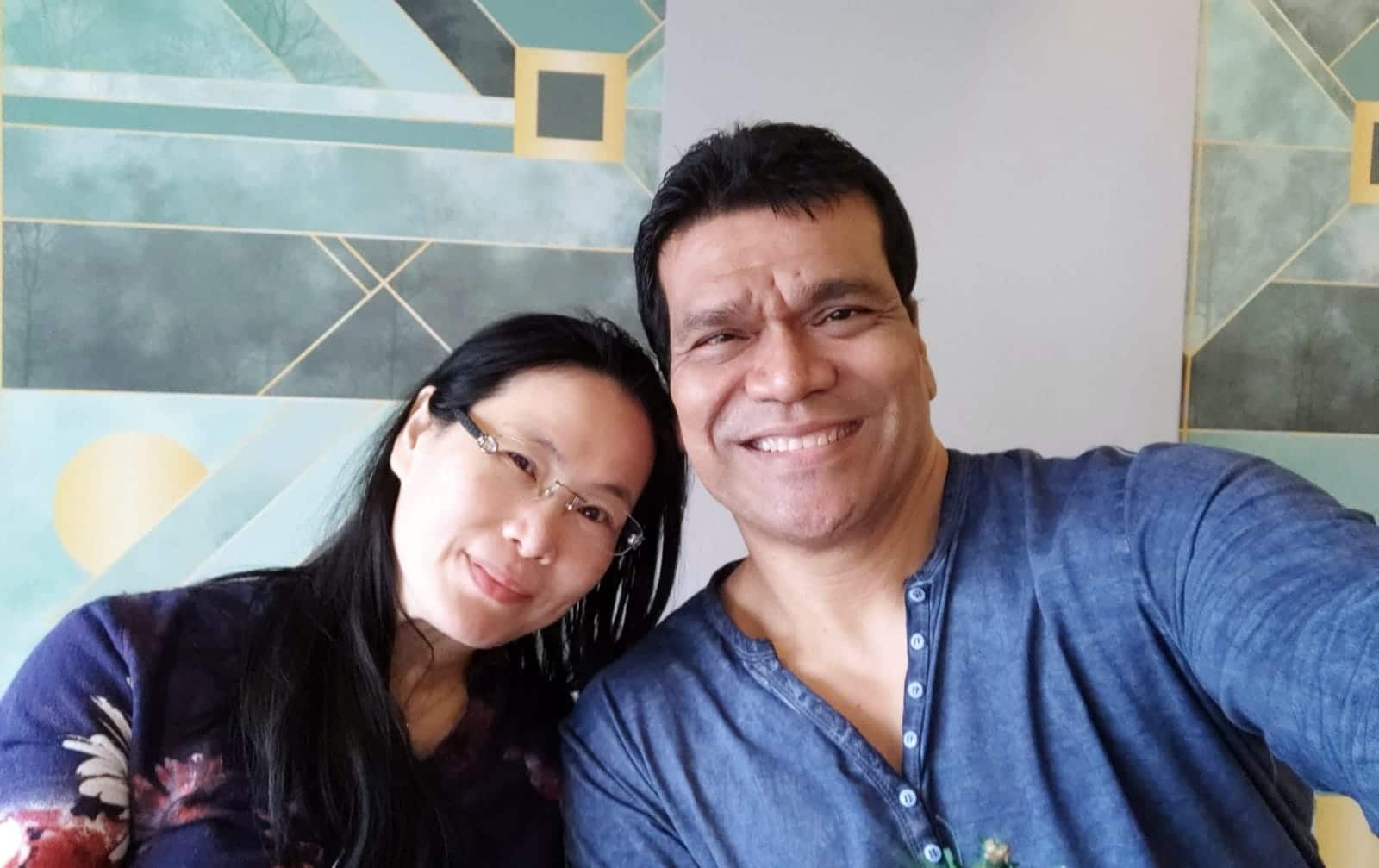How do we “humbly submit” in a competitive industry? Journalists-turned-pastors Eugene Low and Christopher Chia give their take
Sarah S // December 6, 2019, 10:13 pm

Reverend Eugene Low of Grace Baptist Church (left) and Reverend Christopher Chia of Adam Road Presbyterian Church (right) are former journalists with The Straits Times.
Last month, I left my well-worn desk at Salt&Light to join a secular newsroom. An exciting new season presents itself but, having worked in a ministry setting for close to two years, one main worry has surfaced: Will I live up to my former company’s namesake in the marketplace?
As one of my last assignments, I decided to seek the advice of two journalists-turned-pastors: Reverend Eugene Low, a pastor at Grace Baptist Church and a former Washington Correspondent for The Straits Times, and Reverend Christopher Chia, the senior pastor at Adam Road Presbyterian Church and previously a sub-editor at The Straits Times.
Here, Rev Chia shares his insights. (Please see Rev Low’s interview here.)
To begin with, how exactly can I be salt and light in the marketplace?
Rev Chia: I think the best preparation is a healthy and robust dose of God’s sovereignty. This is the unshakeable assurance that the marketplace is still under the Lordship of Jesus. It is not as if there are spaces out there that are outside Jesus’ sovereign control and direction for his glory.
No matter how demanding our job, we can prayerfully see with spiritual eyes and ask: How should I respond under Jesus’ Lordship?
Yet, at the same time, we must recognise that our secular spaces are an expression of our fallen world. Our runaway and unhinged world is very devoid and empty of God.
In fact, “secularisation” means our intentional eviction of God from all the places of our life. God is very missing from our home places, school places and work places. In that sense, our marketplaces are very much self-envisioned, self-ruled and self-glorifying.
So, nurturing a maturing relationship with God is perhaps the safest pathway to be a fruitful witness in the our workplaces.
This means no matter unreasonable our bosses or demanding our job specs, we can prayerfully see with spiritual eyes and draw the audit trail back to: How should I view and respond to this under Jesus’ Lordship?
Colossians 3:1-4 exhorts us to humbly submit all areas of our lives in reference and deference to Jesus. The original context was Paul the apostle exhorting slaves to serve their masters as if they were serving the Lord Jesus. This is Jesus’ radical teaching which finally overturned the Roman empire.
I think Christians often grapple with the question: “How do I take my faith in God into the public space?” Many of us think that means having an extra edge of ethics and morality. We turn personal piety into public witness.
“We are not man-pleasers but God-fearers. This gives us unshakeable assurance in our downturns, yet humility in our success.”
Yet, we must realise that ethics and morality are not the monopoly of Christians. People of many religions or even atheists can have enough common grace and can be rather moral in their conduct.
The difference is working with the reality, authority and supremacy of the Lord Jesus.
It is this truth that overhauls and determines how we live, work and play. We don’t do good for goodness’ sake, but we do good out of gratitude for what our Father has done in Christ.
He has come to put the world under new management and we should work with the reality, authority and supremacy of Jesus as our ultimate unseen boss.
That means we are not man-pleasers but God-fearers. It is this that gives us unshakeable assurance in our downturns, yet humility in our success.
How do we bring the Gospel into the workplace?
Rev Chia: I think the most powerful way of sharing the Gospel, besides the reason and manner in which we do our work, is to form authentic relationships with those around us.
“Too many of us are trying to find satisfaction as the goal. I think this is an elusive goal.”
The workplace is full of lost people in business suits. People seem to have “arrived” somewhere in life and are confident about their careers.
Yet, when we get the opportunity to be more personal and relational with them, we discover that underneath the formal business suit or big title is a desperate person. We are all desperately looking for these five primal longings: Meaning, Love, Answers, Happiness and Satisfaction.
Unknown to us, however, we are actually longing and looking for God. Our most powerful witness may be our personal testimony of how Jesus is God’s answer to our lostness.
To borrow John Piper’s words, I want to find my ultimate satisfaction in God. How do I do that through my work?
Rev Chia: Too many of us are trying to find satisfaction as the goal. I think this is an elusive goal. Desiring God and finding satisfaction in God is the goal. So Piper is right.
God giving us satisfaction for a job well done or God giving us good courage in a bad workplace are really just by-products or bonuses of desiring God.
That doesn’t mean we should beat ourselves up if we do find our happiness tied to our work or careers. Ecclesiastes tells us that the whole duty of man is to fear God and eat, drink and find satisfaction in God. So, there is a place for “a tinge of Godly contentment” for a job well done in our fallen world.
In that regard, God likes us to be honest with him. The best way forward is to level with him: “Lord, you know I have mixed motives. This is what I really want. But I know I should want you more than this job, promotion or career climb.”
Hopefully, we will arrive at a season of life where there is nothing we desire more for ourselves than God.
And how can I have an experiential faith that goes beyond the circumstances?
Rev Chia: I did accounting and finance in university. It was just not me. I hated it. Then I became a Christian and started to see things God’s way.
When I graduated, I prayed to God for a job in anything but accounting and finance! He very kindly gave me a job in journalism – something I had never trained in because there were very few opportunities in mass communications. But God very kindly gave me a job where my love for the English language, current affairs and history all came to good use.
Yet, months into the job, slowly but surely, I started to forget God. I started to miss Bible study, miss church and bask in being well-paid and well-liked. I forgot that the reason I got this job was to shine for Him.
So my encouragement for people entering the workplace is to keep praying, to be forever grateful and reliant on God who gave you this job. He surely did not give it to you to become more fearful of man, self-sufficient, or boastful of self. He gave it to you to become more humble and dependent on Him.
The mark of a Jesus person is a heart of thanksgiving.
Finally, living with daily thanksgiving is also one way to practise the presence of God in our workplaces.
It’s a very real expression of the Holy Spirit’s work in us. Ephesians 5 says that we should be “filled with the Spirit” (Ephesians 5:18), which will lead us to give thanks for everything (Ephesians 5:20).
1 Thessalonians 5:16-18 tells us to ”rejoice always” and “give thanks in all circumstances”.
The mark of a Jesus person is a heart of thanksgiving.
A non-believer once visited our church. “What attracted you to check us out?” I asked. He said he was so impressed with his Christian colleague, our church member, who never grumbled about anyone or anything in the office.
To find a non-grumbling Singaporean is almost extinct in our world of discontent! All of which goes to show that a life under the new management of Jesus can be a radical witness in the marketplace.
We are an independent, non-profit organisation that relies on the generosity of our readers, such as yourself, to continue serving the kingdom. Every dollar donated goes directly back into our editorial coverage.
Would you consider partnering with us in our kingdom work by supporting us financially, either as a one-off donation, or a recurring pledge?
Support Salt&Light


